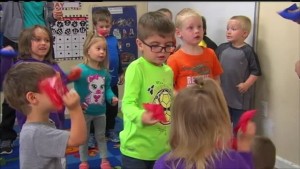From Pre-K to Politics
Though I’m sure we’d all love to claim that we were perfect angels as children, I know that was not the case for me. I clearly remember in either preschool when everyone giggled at Ben McGeehee for his new hair cut. Even though it wasn’t that funny, we laughed because a few people started it and it simply became the thing to do. Poor Ben. But everyone was doing it and those who weren’t, were ‘uncool’ and therefore held no power in our minuscule class of children. Though I wouldn’t call this a social movement, it was a group of people focusing on one thing. In politics, social movements cary power and when enough people join the crowd, things get accomplished. Overall, one of the main points that McAdams argues is that the force of social movements can have a large impact on shifting things, such as the GOP. He talks about how in 1968, Nixon’s strategy to use the “white resistance movement” was simply a result of current social dynamics. The white resistance movement was in opposition to the threat of increasing black power and this relates to Ehrenfreund’s article which discusses evidence pointing to the claim that racism helps the GOP win. These findings about the effects of social movements further proves Andrew J. Perrin’s point, in American Democracy: From Tocqueville to Town Halls to Twitter, that citizenship and democracy are objects of social and cultural movements. Social movements were and are used to shift the GOP to win an election because even though we may be a bit older now, the same fundamental rules from our preschool classrooms still apply.
